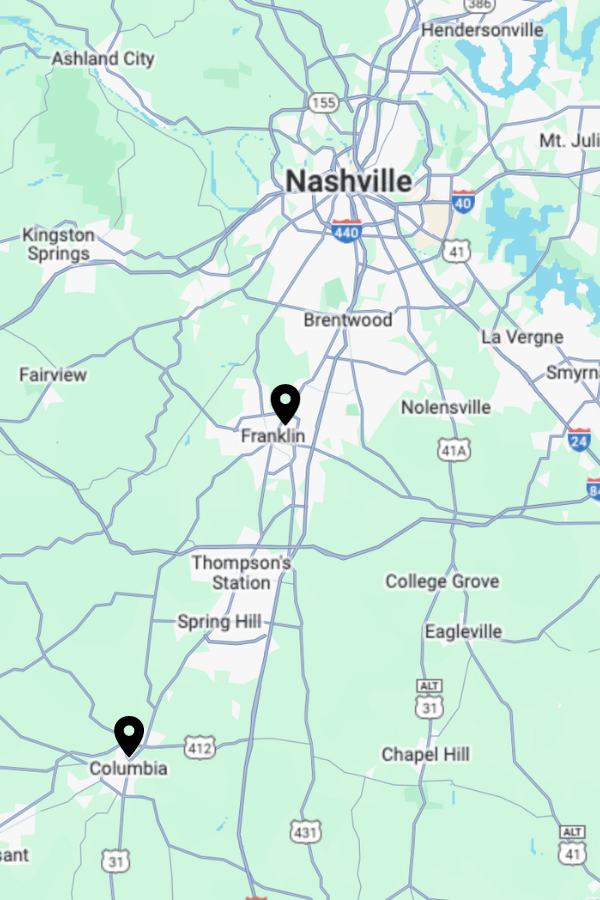Discover various options for how to pay for mental health programs in Nashville, Tennessee. This guide explores insurance coverage, sliding scale fees, government programs, and community resources, helping you find affordable and accessible care. Learn how to navigate financial assistance and make informed decisions about your mental health treatment.

How Much Does Mental Health Therapy Cost in Tennessee?
Mental health therapy in Tennessee typically costs between $100 to $200 per session without insurance. Prices can vary based on the therapist’s experience, location, and type of therapy. Insurance coverage, sliding scale fees, and community resources can help reduce out-of-pocket expenses, making therapy more accessible to a wider range of patients.
Additional factors that influence costs include the length and frequency of sessions, as well as any specialized treatments that may be required. Many therapists offer initial consultations at a reduced rate or for free, which can help in finding the right fit for your needs. Furthermore, telehealth options may also provide a more affordable addiction recovery alternative to in-person sessions.
Statistics on Mental Health Programs in the Volunteer State
In 2023, Tennessee served 32,390 adult clients for behavioral health needs, facilitated by 142 Behavioral Health Safety Net locations. Additionally, there were 130 such locations catering specifically to children. Mental health services are available across 95 counties in the state. Notably, there were 73,052 crisis and suicide prevention assessments conducted.
Despite the efforts, 37.3% of adults in Tennessee reported symptoms of anxiety and/or depressive disorder, mirroring the national average of 32.3%. Alarmingly, 28.7% of people with anxiety or depression in Tennessee did not receive needed counseling or therapy. Only 8.9% of children received mental illness care, while adult suicide mortality stood at 22 per 100,000. Shockingly, one in four children in the state has a mental, emotional, developmental, or behavioral disorder, with 71% of youth with major depressive disorder going untreated.
Free Addiction Assessment
Schedule a free, confidential assessment with a licensed clinician. Apex Recovery can check your insurance coverage levels for drug and alcohol addiction, and mental health treatment.
Does Health Insurance Cover Mental Health Treatment In Tennessee?
Yes, health insurance generally covers mental health treatment in Tennessee. Most health insurance plans, including those under the Affordable Care Act (ACA), must include mental health services as part of essential health benefits. This includes therapy sessions, psychiatric services, and medication management. Coverage specifics, such as co-pays, deductibles, and the number of covered sessions, vary by plan.
Medicaid and Medicare also provide mental health benefits for eligible people, whether you have conditions like schizophrenia, Bipolar disorder, or PTSD (Post-Traumatic Stress DIsorder). It’s important to verify the details of your insurance policy, including in-network providers and pre-authorization requirements, to understand the extent of your coverage and potential out-of-pocket costs. Contact us or call (877) 881-2689 to Apex Addiction Recovery Center for detailed information about your plan.
What is Mental Health Treatment and Therapy Insurance Coverage?
Mental health treatment and therapy insurance coverage refers to the inclusion of mental health services in health insurance plans. This coverage typically includes therapy sessions, psychiatric care, and medication management. It ensures that you can access necessary mental health treatments without bearing the full financial burden.
Insurance coverage for mental health often includes outpatient therapy, such as individual or group counseling, and inpatient care for more severe cases. Many plans cover services provided by licensed professionals, including psychologists, psychiatrists, and social workers. The specifics of coverage, including co-pays, deductibles, and session limits, fluctuate by plan. It’s essential to review your policy details and understand the network of approved providers to maximize your benefits.
Does Health Insurance Pay For Dual Diagnosis Treatment?
Yes, health insurance typically pays for dual diagnosis treatment, which addresses both mental health disorders and substance use disorders simultaneously. Most insurance plans are required to provide coverage for mental health and substance use disorder services as part of essential health benefits.
This may include inpatient and outpatient treatment programs, therapy sessions, medication management, psychiatry, psychotherapy, and support services. The extent of coverage, including co-pays, deductibles, and specific treatment options, varies by plan. It’s crucial to check with the experts at Apex Drug and Alcohol Addiction Recovery Center to understand the specifics of your coverage, including any pre-authorization requirements or limitations for dual diagnosis treatment.
Does Health Insurance Pay For Mental Health Inpatient Treatment?
So, how to pay for inpatient mental health facilities in nashville? One way is health insurance, which generally covers mental health inpatient treatment. This coverage typically includes inpatient care for severe mental health conditions, such as psychiatric hospitalization and residential treatment programs. The extent of coverage, including co-pays, deductibles, and length of stay, varies by plan.
It’s important to review your specific policy details to understand what is covered, any pre-authorization requirements, and potential out-of-pocket cost. Contacting facilities like Apex Alcohol and Drug Addiction Recovery Center can provide detailed information about the scope of your inpatient mental health treatment coverage.

- Please complete and send the form below.
- One of our staff members will contact your insurer to check your coverage.
- We will contact you promptly with the results and to discuss the next steps.
Insurance Verification
"*" indicates required fields
Rehab Center Near Nashville, Tennessee That Takes Health Insurance to Help With Treatment
Apex Recovery is a reputable rehab center with multiple facilities near Nashville, Tennessee, offering comprehensive treatment services covered by health insurance. Our locations include:
- Apex Recovery Franklin: 4601 Carothers Pkwy STE 250A, Franklin, TN 37067, United States
- Apex Recovery Columbia Inpatient: 2710 Trotwood Ave, Suite A, Columbia, TN 38401, United States
- Apex Recovery Columbia Outpatient: 2710 Trotwood Ave, Suite A, Columbia, TN 38401, United States

How to Find Treatment Centers in Nashville, Tennessee
Apex Addiction Recovery Center in Tennessee’s facilities provide a range of inpatient and outpatient treatment options for those seeking help with mental health and substance use disorders, ensuring accessible and quality care through insurance coverage.
Apex Recovery Franklin
4601 Carothers Pkwy STE 250A
Franklin, TN 37067
Apex Recovery Columbia
2710 Trotwood Ave STE A & B
Columbia, TN 38401
Is It Worth Paying For Rehab If You Don’t Have Health Insurance Coverage?
Yes, it can be worth paying for rehab even without health insurance coverage. Rehab provides essential support and resources for overcoming addiction and improving mental health, which can significantly enhance your quality of life and long-term wellness. Investing in rehab treatment can lead to positive outcomes such as sobriety, improved relationships, better mindfulness, self-care, mental health, and increased overall functioning.
While the cost may seem daunting, many rehab facilities offer financing options, sliding scale fees, and other forms of assistance to make treatment more accessible. Ultimately, prioritizing your health and seeking professional help for addiction or mental health issues can lead to a happier and more fulfilling life.
How Much Does a Mental Health Treatment Cost Without Insurance?
Without insurance, the cost of mental health treatment can vary widely depending on factors such as the type of treatment, the provider’s fees, and the region. On average, therapy sessions without insurance typically run $150 per session. However, the total cost can increase significantly if additional services such as psychiatric evaluations, medication management, or inpatient treatment are required.
For those without insurance, many mental health providers offer sliding scale fees based on income, making treatment more affordable. Additionally, community health centers and nonprofit organizations often provide low-cost or free mental health and stress management services to those in need. Some facilities, like Apex Addiction Recovery Center in Tennessee, offer sliding scale fees or reduced rates for uninsured clients. While the cost of mental health treatment and paying for rehab without insurance can be daunting, exploring these options can help you access the care you need to support your emotional well-being.

How to Get Into a Tennessee Rehab With If You Can’t Afford To Pay?
If you can’t afford to pay for rehab in Tennessee, there are still avenues to access treatment. Community-based therapy support groups offer free or low-cost care. You can explore grants for addiction treatment, scholarships for rehab programs, and Employee Assistance Programs (EAPs). Faith-based community programs and government-funded or subsidized coverage are also available options to consider. Note: this list doesn’t cover all options.
Community-based Therapy Group Support
Community-based therapy group support provides valuable resources for individuals seeking affordable rehab options in Tennessee. Participants can share experiences, receive guidance, and access resources to aid in their recovery journey. Led by trained facilitators or peers with lived experience, these groups focus on various aspects of addiction recovery, such as coping strategies, relapse prevention, and building a sober support network.
By participating in community-based therapy groups, you can receive ongoing support and encouragement without the financial burden often associated with traditional rehab programs, making it an accessible option for those in need of assistance.
Rehab Grants & Scholarships
Rehab grants and scholarships present viable options for those seeking financial assistance to access rehab in Tennessee. These programs, often offered by government agencies, nonprofit organizations, or private institutions, help by funding addiction treatment to those in need. Eligibility criteria may vary, but patients can apply based on factors such as income level, demographic background, or specific circumstances.
Rehab grants and scholarships can cover some or all of the costs associated with treatment, including detoxification, therapy sessions, and aftercare support. By securing financial aid for substance abuse rehab through these programs, you can receive the necessary care and support to embark on your journey towards substance abuse recovery on a budget.
Leveraging Employee Assistance Programs (EAPs)
Leveraging Employee Assistance Programs (EAPs) offers an avenue in Tennessee to access rehab support through workplace benefits. EAPs provide confidential counseling and referral services for employees facing personal or work-related challenges, including substance abuse issues. These programs typically offer a set number of counseling sessions with licensed therapists, as well as assistance in connecting employees with appropriate treatment resources.
By utilizing EAPs, people can access professional support for addiction recovery at little to no cost, helping you address your substance abuse issues while maintaining privacy and confidentiality within the workplace setting.
Faith-based Community Programs Assistance
Faith-based community programs offer assistance to people in Tennessee seeking rehab support within a spiritually oriented environment. These programs, often run by churches, mosques, synagogues, or other religious organizations, provide a holistic approach to addiction recovery that integrates faith-based principles with therapeutic interventions.
Participants receive support through group meetings, counseling sessions, and spiritual guidance tailored to their religious beliefs. Additionally, faith-based programs may offer practical assistance with basic needs such as food, shelter, and clothing. By engaging with faith-based community programs, you can access a supportive network that addresses your spiritual and emotional needs while providing resources to overcome addiction and rebuild your life.
Government-funded Rehab / Subsidized Coverage
Government assistance for rehab and subsidized coverage offer crucial support for people in Tennessee who cannot afford private treatment options. These programs, often administered through state or federal agencies, aim to make addiction treatment accessible to low-income patients and those without health insurance.
Government-funded rehab facilities may provide a range of services, including detoxification, counseling, and aftercare support, at little to no cost for eligible participants. Subsidized coverage, such as Medicaid, may also cover the cost of rehab services for qualifying people. By accessing government-funded resources, you can receive the necessary treatment and support to overcome addiction and achieve lasting recovery.

What Are Various Ways to Pay For Rehab With No Health Insurance?
If you don’t have health insurance, there are still various ways to cover costs for drug rehab without insurance. Options include financing plans, sliding scale fees, fundraising or crowdsourcing, and seeking support from friends and family. The following list provides examples to explore, though it is not exhaustive.
Find Support With Financing Options
For a mental health treatment center, Nashville rehab facilities offer financing options to help make treatment more affordable. These financing plans often allow you to spread the cost of rehab over a period of time through monthly payments. Some facilities partner with third-party lenders who specialize in healthcare financing, providing low-interest or interest-free options to those who qualify.
Additionally, you can explore personal loans from banks or credit unions to cover the cost of treatment. Some lenders may offer loans specifically for medical expenses, including rehab. It’s important to compare different financing options and consider the interest rates, repayment terms, and any potential fees to find the best solution for your financial situation.
Sliding Scale Fees as a Payment Option
Sliding scale fees are other rehab payment plans offered by rehab centers Nashville residents can trust, including Apex Substance Addiction Recovery Center. With sliding scale fees, the cost of treatment is adjusted based on your income and ability to pay. This means that people with lower incomes may qualify for reduced rates, making rehab more accessible to those in need.
To determine your sliding scale fee, you’ll typically need to provide proof of income, such as pay stubs or tax returns. The rehab center will then assess your financial situation and adjust the cost of treatment accordingly. This flexible payment option can help those with limited financial resources receive the care they need to overcome addiction or mental health issues.
Fundraising and/or Crowdsourcing
Fundraising and crowdsourcing can be effective ways to gather financial support for rehab treatment when you don’t have health insurance. You can organize fundraising events to raise funds from friends, family, and the community. Social media platforms and crowdfunding websites can also help by reaching a broader audience and facilitating donations from people who want to support your cause.
When setting up a fundraising or crowdsourcing campaign, it’s crucial to clearly communicate your need for financial assistance and explain how the funds will be used for rehab treatment. Sharing your personal story and journey towards recovery can resonate with donors and inspire them to contribute to your cause. Additionally, expressing gratitude and keeping supporters updated on your progress can help maintain their engagement and support throughout your rehab journey.
Asking Friends & Family for Support
Asking friends and family for support can be a big step in financing rehab treatment without health insurance. Reach out to your loved ones and explain your situation honestly, emphasizing the importance of getting help for your recovery. Be transparent about rehab costs and how their financial assistance can make a significant difference in your ability to access treatment.
When approaching friends and family for support, consider discussing alternative ways they can help if they’re unable to contribute financially. This could include offering transportation to treatment sessions, assisting with childcare or household responsibilities, or providing emotional support throughout your recovery journey. Remember to be grateful for any support offered, whether financial or otherwise, as their encouragement and assistance can play a vital role in your success in rehab.
Which Insurance Providers Cover Behavioral Health Programs?
Several popular health insurance providers in Tennessee offer coverage for behavioral health programs, including:
These insurance companies typically include coverage for mental health and substance abuse treatment as part of their health plans. Behavioral health programs covered by insurance may include therapy sessions, psychiatric care, medication management, and inpatient or outpatient treatment for substance use disorders and other mental health conditions.
It’s important for you to review your specific insurance policy with us at Apex Addiction Recovery Center to understand the details of your behavioral health coverage, including any co-pays, deductibles, and limitations on services. Call us at (877) 881-2689 today to check your insurance and get started on your behavioral health journey.

Statistics and Info on Mental Health Therapy Programs in Tennessee
- 32,390 adult clients were served for behavioral health needs in Tennessee in 2023
- There are 142 Behavioral Health Safety Net locations for adults in the state
- There are 130 Behavioral Health Safety Net locations for children in the state
- 95 counties across TN provide mental health services
- There were 73,052 crisis and suicide prevention assessments in TN in 2023
- 37.3% of adults in Tennessee reported symptoms of anxiety and/or depressive disorder
- In the U.S., 32.3% of adults reported symptoms of anxiety and/or depressive disorder
- 28.7% of those in TN with anxiety or depression reported needing counseling or therapy but did not receive it
- 8.9% of children ages 3-17 in Tennessee received mental health care
- 18% of adults experienced frequent mental distress in 2021 in TN
- Adult suicide mortality rate was 22 per 100,000 in 2021
- 1 in 4 children has a mental, emotional, developmental, or behavior disorder in the state
- 71% of youth with major depressive disorder did not receive health services
Sources:
tn.gov
kff.org
Tennessee Department of Health
